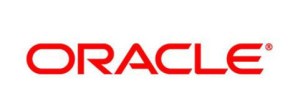
After months of examination, the European Commission has unconditionally approved Oracle’s planned acquisition of Sun Microsystems, clearing a major hurdle towards the database giant’s eventual takeover of Sun. European competition commissioners had been concerned because the deal would put one of the major players in the commercial database market (Oracle) in control of the leading open source database systems (MySQL). However, Oracle insisted that the acquisition would not impact competition in the database market, and the EC apparently agreed.
“I am now satisfied that competition and innovation will be preserved on
all the markets concerned,” said the EC’s competition commissioner Neelie Kroes said, in a statement. “Oracle’s acquisition of Sun has the potential
to revitalize important assets and create new and innovative products.”
The European Commission concluded that while MySQL and Oracle do compete with each other in portions of the database market, they do not particularly compete in the high end of the market, where Oracle earns most of its revenue. Even if Oracle were to let MySQL fade from the scene due to neglect, the commission concluded that alternative open source database systems like PostreSQL could be expected to step in. In addition, derivative products can legally be “forked” off MySQL in the event Oracle were to kill the product. Oracle has pledged to continue development of MySQL under GPL terms, and work with third parties to enable them to continue to develop solutions based on MySQL.
Oracle now needs antitrust approval from China and Russia to complete the acquisition, and expressed optimism it would obtain unconditional approvals from those countries as well. However, earlier this month Russia’s Anti-Monopoly Service decided to launch its own investigation into the deal, citing concerns regarding Oracle’s acquisition of MySQL. Although Russia may well ultimately approve the deal, another investigation would mean additional delays. Oracle originally announced its intention to take over Sun for $7.4 billion back in April 2009.


